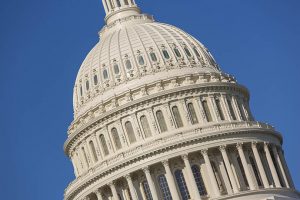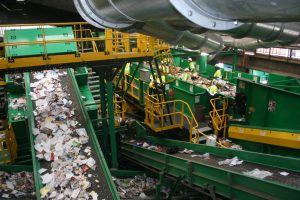 Multiple industry associations have renewed calls for China to reconsider its import restrictions in the weeks leading up to the country’s planned ban on certain recovered materials entering the country.
Multiple industry associations have renewed calls for China to reconsider its import restrictions in the weeks leading up to the country’s planned ban on certain recovered materials entering the country.

 Colin Staub was a reporter and associate editor at Resource Recycling until August 2025.
Colin Staub was a reporter and associate editor at Resource Recycling until August 2025. Multiple industry associations have renewed calls for China to reconsider its import restrictions in the weeks leading up to the country’s planned ban on certain recovered materials entering the country.
Multiple industry associations have renewed calls for China to reconsider its import restrictions in the weeks leading up to the country’s planned ban on certain recovered materials entering the country.
 The federal tax bill before Congress this week retains tax incentives and exemptions that could boost the recycling sector.
The federal tax bill before Congress this week retains tax incentives and exemptions that could boost the recycling sector.
 Pratt Industries plans to break ground on a sizable recycled containerboard mill in the Midwest next year, a move that’s part of the company’s vertical integration strategy.
Pratt Industries plans to break ground on a sizable recycled containerboard mill in the Midwest next year, a move that’s part of the company’s vertical integration strategy.
 A key unknown during the Congressional tax negotiations was the fate of tax-exempt private activity bonds, which are frequently utilized in the solid waste and recycling industry. It now appears they’ll be retained.
A key unknown during the Congressional tax negotiations was the fate of tax-exempt private activity bonds, which are frequently utilized in the solid waste and recycling industry. It now appears they’ll be retained.
 China is unprepared to effectively roll out and enforce its planned Jan. 1 ban on imports of certain recyclables, according to recycling leaders who recently traveled to the country in search of answers.
China is unprepared to effectively roll out and enforce its planned Jan. 1 ban on imports of certain recyclables, according to recycling leaders who recently traveled to the country in search of answers.

Graphic Packaging closed down its Santa Clara, Calif. facility in early December. Photo: Google Maps
Graphic Packaging closed its Santa Clara, Calif. recycled paperboard mill at the beginning of December, citing high costs and market volatility as contributing to the decision.
 A top Chinese environmental official recently indicated that China has plans to enforce upcoming import restrictions “to the letter.”
A top Chinese environmental official recently indicated that China has plans to enforce upcoming import restrictions “to the letter.”

Tax reform legislation moving through Congress could help recycling companies deduct equipment expenditures.
Tax reform bills approved by the U.S. House and Senate include sweeping cuts to business taxes, and recycling industry associations are applauding the business-friendly measures.

Jessica Branom-Zwick, Cascadia Consulting Services
Similar to the material stream itself, the industry is undergoing a shift – one in which basic diversion rates no longer suffice to tell the story about program effectiveness.

Keith Ellison speaks at the 2017 Resource Recycling Conference.
In a rousing speech to recycling leaders, U.S. Rep. Keith Ellison explained how pushing forward on materials diversion will lead to a higher quality of life for everyone.
